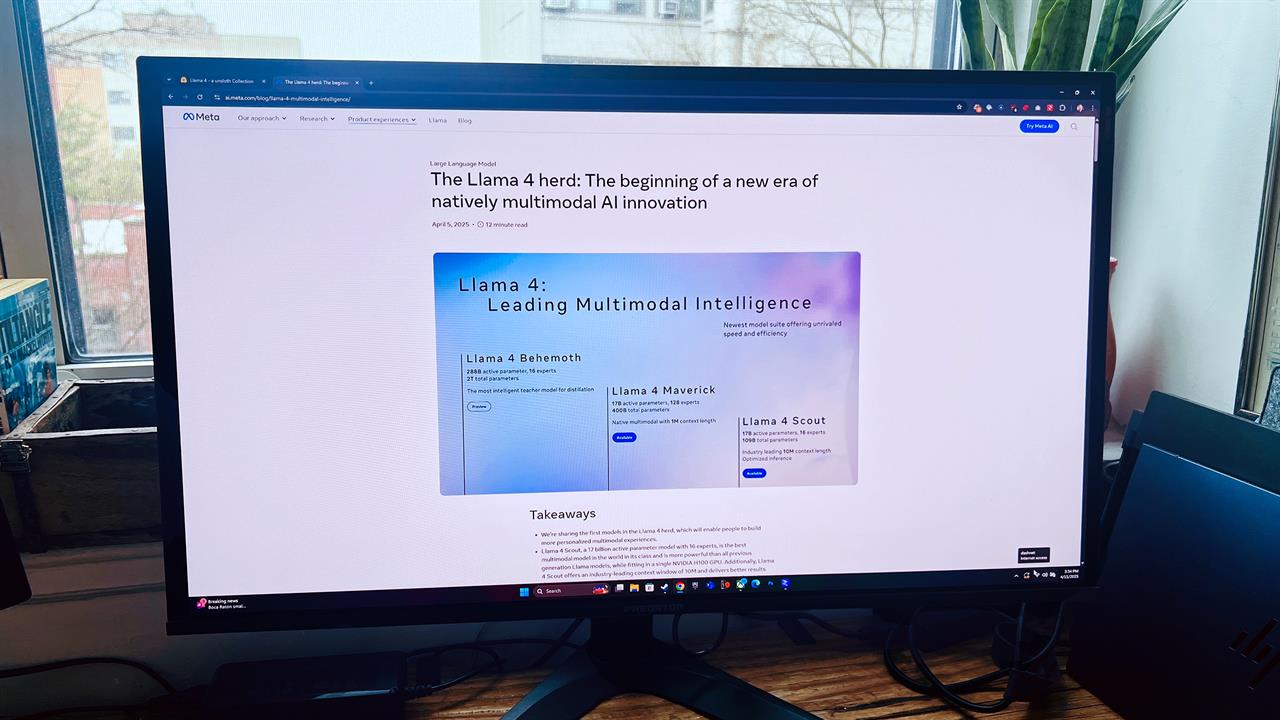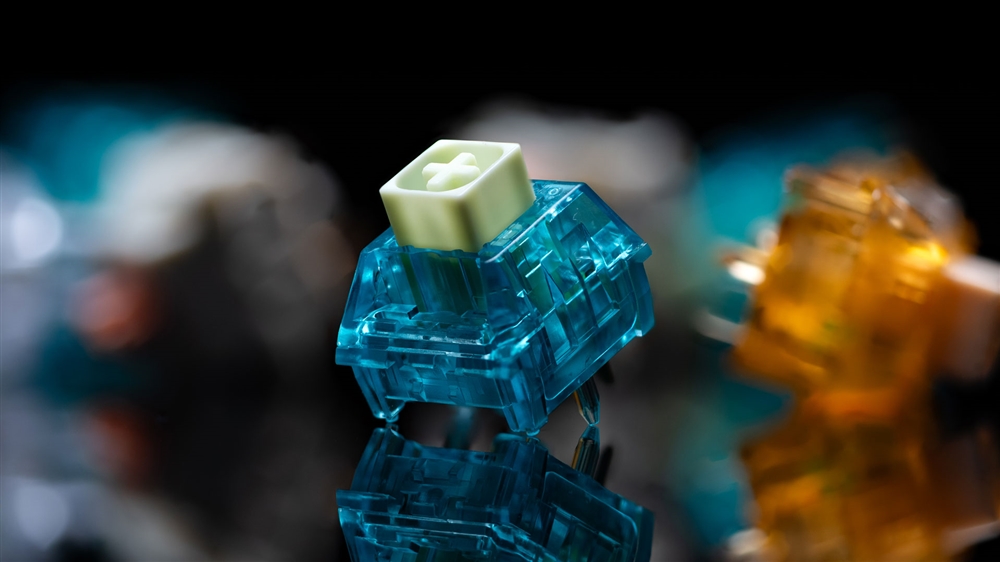This Week in AI: Llama 4 Launches
For April 11, 2025: Shopify leans into AI, AI loses March Madness, Barbie Boxes takes over.News

Meta released its next-generation AI technology, Llama 4, which it says is more capable than its predecessors and able to perform tasks using dramatically less computer power. As before, Meta is making its AI technology openly available for download, allowing companies and developers to use what it says are "among the world's smartest LLMs."
Reviews so far have been mixed, in part because Meta said people are experiencing "mixed quality" from different companies providing the computer power to run the programs.
“Since we dropped the models as soon as they were ready, we expect it’ll take several days for all the public implementations to get dialed in,” Meta's generative AI VP, Ahmad Al-Dahle, wrote in a social media post. “We’ll keep working through our bug fixes and onboarding partners.”
One key change Meta said it's making to Llama is around political bias. Many LLMs "historically have leaned left when it comes to debated political and social topics," Meta said. With Llama 4, Meta said, responses are "dramatically more balanced. "Our goal is to remove bias from our AI models and to make sure that Llama can understand and articulate both sides of a contentious issue."
Shopify embraces AI
Shopify CEO Tobi Lutke wrote a memo to his team that he also posted on X, in which he said "Reflexive AI usage is now a baseline expectation" at his company. What that means, he said, is employees are expected to use AI in their daily work, whether it's as a programmer or research assistant.
"What we have learned so far is that using AI well is a skill that needs to be carefully learned by… using it a lot," he wrote. "The call to tinker with it was the right one, but it was too much of a suggestion. This is what I want to change here today. "
AI flubs March Madness
We have another datapoint to dissect in the probably never-ending debate about whether people or machines are better at pretty much anything. This time, it's the March Madness bracket challenges, and Axios found that not only did AI chatbots struggle to fill out its women's bracket challenge, but that it ended up "finishing below most of the human pickers."
"AI bots are likely to become key helpers in every realm of human activity -- fantasy sports included," Axios's Ina Fried wrote earlier this week. "But all that computing power doesn't guarantee better results, this year's experience shows." (To be fair, Fried's bracket ended below both AI entries.)
[Editor's note: I actually won the Micro Center March Madness contest last year, using AI, but decided to not participate this year, retiring as the undefeated (if AI-assisted) champion. -DA]
Pew: AI Experts see a positive effect on the US over time
There's a term in tech called "AI doomerism," which effectively is a catchall for people who critically question and believe that the technology will have substantial negative impacts on society. But how many AI doomers are really out there?
The Pew Research Center released results from a recent survey where it spoke to two groups of people: 5,410 people in the US, and 1,013 "AI experts," including authors and presenters at AI conferences. What it found was that AI experts overwhelmingly feel more positive about AI's effect on the US over the next 20 years, with 56% saying positive, and 23% saying equally positive and negative. Only 15% of experts believe it'll be negative, which is far below the 35% of US adults who responded to the same survey. The rest of us are clearly more circumspect, with 33% saying AI will have equally positive and negative effects, and only 17% believing it will be positive.
Perhaps unsurprisingly, Pew also found that AI experts at colleges and universities are "far less confident" in AI industry efforts than their peers working for the companies themselves. In those cases, 60% of AI experts in academia say they have not too much or no confidence US companies will develop and use AI responsibly, far higher than the 39% of those who work at private companies.
The one thing they mostly agree on? Just over half of AI experts in academia have not too much or no confidence the US government will regulate AI effectively. Just under half in private companies or businesses feel the same.
The Barbie Box trend takes over
With ChatGPT's new image generator producing viral images in the style of Japanese animator Studio Ghibli, Lego and Disney's The Muppets, of course it was only a matter of time before another viral trend took off. This time, it's the "Barbie Box" (or "Action Figure Box" for some of us) where people create stylized action figures in a retail box, complete with accessories and catch phrases.
Here's how ChatGPT recommends you write a prompt:
"A highly detailed action figure in a plastic blister-pack display, hanging on a cardboard backing. The character is ‘[INSERT NAME OR ROLE HERE]’, posed dramatically with themed accessories. The packaging has a bold logo at the top, a comic-style tagline like ‘[TAGLINE]’, and includes a list of accessories like ‘[3-4 accessories]’. The backdrop design reflects the character’s world or personality — make it look like a real, vintage or modern collectible toy."
The next step is a little tough for people concerned about their privacy: Upload photos of yourself or someone who looks like you, to serve as reference images.
Read more: AI Tools and Tips
- How to Use an AI Agent
- Chain of Thought: AI's New Reasoning Revolution
- DeepSeek's New AI Challenges ChatGPT — and You Can Run It on Your PC
- How To Improve Your AI Chatbot Prompts
- How I Turned Myself into an AI Video Clone for Under $50
- What is Meta AI? A Capable Chatbot That’s 100% Free
- How to Get Started with Copilot for Microsoft 365
- Getting started with LM Studio: A Beginner's Guide
- Meet Claude, the Best AI You've Never Heard of
- What is TOPS? The AI Performance Metric Explained
Ian Sherr is a widely published journalist who's covered nearly every major tech company from Apple to Netflix, Facebook, Google, Microsoft, and more for CBS News, The Wall Street Journal, Reuters, and CNET. Aside from writing, he tinkers with tech at home, is a longtime fencer -- the kind with swords -- and began woodworking during the pandemic.











